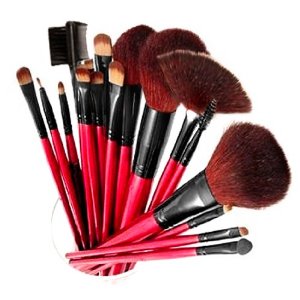 It turns out that phthalates – chemicals found in cosmetics, hairspray, packaged food, household cleaners, and other common plastic items – are causing early menopause. At least according to one new study that is getting a lot of hype in the past week or two. A team of researchers from Washington University in St. Louis, MO, studied phthalate levels in blood and urine for over 5,000 women, and those women with the highest levels of pthalates apparently went into menopause an average of at least two years before others.
It turns out that phthalates – chemicals found in cosmetics, hairspray, packaged food, household cleaners, and other common plastic items – are causing early menopause. At least according to one new study that is getting a lot of hype in the past week or two. A team of researchers from Washington University in St. Louis, MO, studied phthalate levels in blood and urine for over 5,000 women, and those women with the highest levels of pthalates apparently went into menopause an average of at least two years before others.
This study is definitely making news. British news sources are reporting on this study as much as U.S. news sources. Women’s reactions to online news stories about this study are mixed. Women hearing about this study are quick to comment online, saying either (1) how quickly they’ll be running out to buy more makeup (to launch themselves into menopause) or (2) discontinuing their use of makeup (to ward against the effects of pthalates). What I find interesting is how divided women are about whether early menopause is good. Reactions to reports on this study definitely show attitudinal differences among women in that women do not think uniformly about menopause or about the importance of using cosmetics. Women are not thinking uniformly about how damaging phthalates are to our bodies either.
Of course, by all news reports of this study, phthalates also cause cancer, diabetes, and even feminization of boys (really?), so even if you think early menopause is a good thing you might want to hold off on consuming more phthalates.
What this study (and people’s belief in the study) also reiterates is the fact that our bodies are affected by what we eat, use, and do, as well as what we come into contact with, where we live, etc. Some of the articles reporting on this study focus in on the natural, healthy choices we can make when picking beauty products, household cleaners, prepared food, and other common household items. Who knew there was vegan makeup, for instance? This is all worth a second thought. Sure, we might all want to be done with menstruation sooner than later but phthalate-induced menopause should probably not be our goal.


So many reminders of how much we have to do to frame menstruation, from menarche to menopause, in a more positive way, or at least provide a more nuanced perspective that includes both benefits and downsides. Maybe it’s time for a cost/benefit analysis in relation to the menstrual cycle, including the pros and cons of early menopause.